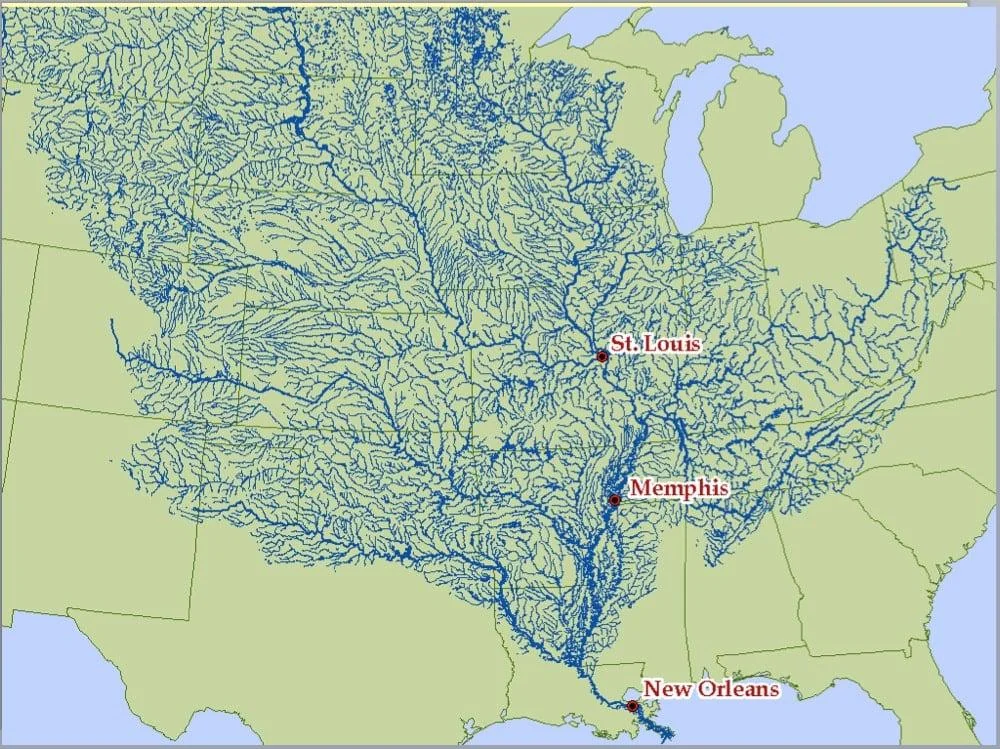this post was submitted on 28 Jan 2024
196 points (98.0% liked)
Map Enthusiasts
3481 readers
2 users here now
For the map enthused!
Rules:
-
post relevant content: interesting, informative, and/or pretty maps
-
be nice
founded 2 years ago
MODERATORS
you are viewing a single comment's thread
view the rest of the comments
view the rest of the comments

It's absolutely insane we don't do a shit load more shipping in this amazing river system. Thanks, Jones Act.
The tldr is that to go directly between two ports in the United States, a ship must be American built and flying American colors. The law is the result of the shipping industry's lobbying efforts 100 years ago. Until that point, American shipping had been considered the best for several decades, and they'd rather have Uncle Sam protect them instead of doing anything to be more attractive. This is why if you get on a cruise ship, you always visit a foreign port. You can't sail directly between Houston and New York. It also means that cargo sent within the United States can't go by water. All cargo moving domestically moves by road, rail, or air.
The Mississippi River sees constant river boat traffic.
Those smaller, feeder rivers often aren't big enough to support a barge.
The Jones act mostly applies to ocean shipping, in fact, I don't think the Jones act even applies to river traffic.
To be fair, the Jones act consistently fucks over Puerto Rico, and should probably be scrapped or amended, it just doesn't stop river traffic on rivers that can't actually support said traffic.
https://www.marinetraffic.com/en/ais/home/centerx:-89.2/centery:29.1/zoom:4
You can see the traffic on the Mississippi, from downtown Memphis, you rarely see the river without some barges.
Indeed, a lot of grain from the breadbasket of the US flows on the barges floating down the Mississippi. Much of our food system depends on that river.
The Missouri River on the other hand does not. Despite being long, it does not see much traffic due to dams and locks in Nebraska and upstream from there. Channelsizing the Missouri has proven to be difficult to maintain too. It is said that the only reason that the Missouri River is channelized is to allow Army Corp of Engineer barges up and down the river to fight the river against the channelization. A Sisyphian task.
Also it's cheaper to ship grain from the upper Missouri region to the Columbia Plateau and then down the Snake and Columbia on barges where it then gets loaded onto freighters in Portland, Vancouver and Longview and shipped to Asia and South America. By volume the Columbia is the second largest watershed in the US. Obviously all of the Columbia Plateau grain gets shipped down the Columbia as well, which is a lot, since it's a major grain producing region.
The downside is crossing the Columbia Bar which is also known as the graveyard of the Pacific, but there are highly paid Columbia River pilots for that.
Glad somebody said this
The Jones Act could be repealed tomorrow and the benefits to Hawaii, Guam, Puerto Rico, US Virgin Islands, etc would be extraordinary
Doesn't it only have those restrictions if it's a foreign vessel? They could ship and cruise locally with American made and registered ships?
I live in St Louis, there are tons of barges taking materials up and down the river every day. It doesn’t measure up to our hay day 130 years ago but there is still a lot of shipping
I live in Portland and it's the same here on the Columbia and the Willamette. We don't get the giant container ships because they can't cross the Columbia Bar, but we do get midsize grain ships headed for Asian and South American markets.
the 1800's called...